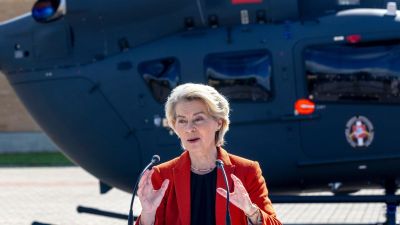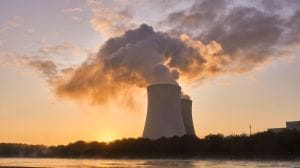Any difference between Lucknow and Dehra Dun?
The battle for Uttarakhand may have been won but not the warAT midnight, November 8-9, 2000, Uttaranchal -- the 27th state of the country ...

The battle for Uttarakhand may have been won but not the war
AT midnight, November 8-9, 2000, Uttaranchal 8212; the 27th state of the country 8212; came into being. It was the consequence of an unprecedented people8217;s movement over the last six years.
And, yet, the creation of the new state has not caused obvious elation among the people. By and large, no joy, no sense of achievement and, at best, only a sense of relief. The swearing-in of its first governor and CM would suggest that there was no such thing as the Uttarakhand movement. With a callous disregard for the sentiments of the people, the BJP has pushed the movement to the sidelines. Given the political atmosphere in the country, one need not be surprised. That the people do not matter and only the party does is evident from two acts: The name given to the state, and the choice of Dehra Dun as the capital albeit a temporary one.
The entire movement for this separate hill state, even when it was first seriously mooted in the early fifties, had always spoken about it as Uttarakhand, a name that had its genesis in ancient lore and scripture. It is rather odd for a party, which considers itself the sole guardian of the country8217;s culture, to have discarded the traditional, in this case. Naming Dehra Dun as the capital only suggests that it is the writ of the politician, bureaucrat, lobbyist and the mafia which has prevailed 8212; and not the interests of the people nor the development of the hill region.
During the Uttarakhand movement, the one point of consensus that had emerged was having Gairsain as the capital of the proposed state. One of the major gains of the Uttarakhand movement was the break-up of a barrier, part fact, part fiction, which existed between the people of Garhwal and Kumaon. Gairsain symbolised the coming together of the two communities. By making Dehra Dun the capital, the government has undone this valuable consensus.
The choice of Gairsain, located in a valley close to the border between Garhwal and Kumaon would have been appropriate 8212; the capital of a hill state being in the hills. It would also have signified that the common hill folk are the masters of their own destinies and are the initiators of their own development. Dehra Dun was, in any case, one of the most developed regions in erstwhile UP. There is now every chance the lion8217;s share of whatever economic assistance comes the way of an already resource-poor Uttaranchal, will be cornered by Dehra Dun. People are already beginning to ask whether they are any better off under the new dispensation. What any wayis the difference between having Dehra Dun as the capital, or Lucknow?
At the same time Dehra Dun, which once boasted a year-round equitable climate, had a thick green cover and ample water resources, is already bursting at its small, sensitive seams. The orchards of delicious, juicy litchi have all but vanished from the town area. And the outskirts of the town, where the air used to be laden with the fragrance of the basmati, are fast being gobbled up by residential construction activity. The locals know that the basmati now, selling in the town actually originates in Saharanpur and even Punjab, and is a far cry from the original that used to grow here.However, the most worrying factor is that Dehra Dun and its adjoining areas have in the last decade seen strong infiltration from adjoining regions now outside the state. And this infiltration is not the kind that might be welcomed. The town has become a stronghold of an established mafia 8212; particularly one dealing in land and liquor.
The government might defend itself by saying that Dehra Dun is only the interim capital, but the common person feels short-changed and fears in fact, knows that the capitals do not change easily. It didn8217;t change in the case of Shimla in Himachal Pradesh. Already close to Rs 50 crore have been spent or are proposed to be spent on Dehra Dun, much of it on unnecessary sprucing up. With this, a worthwhile beginning could have been made in Gairsain. It is obvious, the birth of the new state means that people8217;s struggle has not ended but must continue. In fact, now more than ever. As the cliche goes, the battle for Uttarakhand may have been won but certainly not the war.
- 01
- 02
- 03
- 04
- 05































